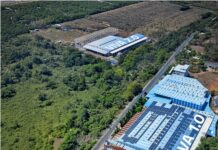New Delhi, June 29, 2018: Ideas to address the shortage of affordable housing in Delhi, water scarcity in Bangladesh and urbanisation in Chennai are among the South Asia shortlist for a global competition run by RICS (the Royal Institution of Chartered Surveyors).
In February this year, RICS launched the “Cities for our Future”competition, in partnership with the United Kingdom National Commission for UNESCO and the Association of Commonwealth Universities. The competition called upon young people to come up with new ideas to help tackle the most pressing problems affecting cities in South Asia and around the world. The competition received more than 1,200 entries globally. The winner of the competition will receive a prize of £50,000.
A winner from South Asia will be announced in July, 2018, who will go on to the global shortlist with the chance to win £50,000. All entries on the global shortlist will get a chance to work with an expert mentor provided by RICS, who will help develop the idea in the run up to the final judging in November, 2018
Sean Tompkins, RICS Global CEO said: “Our aim with the Cities for our Future Competition was to harness the ideas of our diverse and talented young people to help solve the challenges of the cities they care about and make them better for generations to come. We hope that the leaders of the world’s cities are listening and will work with us and all of our shortlisted entries to make these ideas a reality and help tackle some of the most pressing issues facing their cities.”
The full short list of entries announced today are:
- A scheme to address the impact of urbanisation by turning disused land into common space for public use, proposed by KavinSundar from India
- Puranide, an organic filtration system, proposed by SharmilaKandeeban, from India. This natural purification system can clean both contaminated and salt water making it safe to drink.
- Urban farming-an agricultural and urban co-habitation approach, proposed by SayaliVirulkar, from India. The idea puts agricultural land at the heart of cities, with the potential to boost the economy and improve the health of people in urban areas by providing better access to healthy food.
- An aluminium potassium sulphate based water filter that allows a ready supply of clean water in Bangladesh, proposed by Fiona Grieve from the United Kingdom.
- Core House, a concrete frame that provides a basic structure for residents to build on over time, proposed by Julia King from the United Kingdom.
With three million people moving to cities every week, the growth of the urban population is one of the biggest challenges facing society today. This rapid expansion is putting ever more strain on urban infrastructure and services. Many city dwellers live in slums or poor quality housing; many put up with poor air quality and inadequate transport links.
Dr. Joseph V Thanikal, Associate Dean and Director, School of Construction, RICS School of Built Environment andHead Judge of the regional judging panel for South Asia for the “Cities for our Future” competition, said, “South Asia is one of the most overcrowded regions in the world, with the population of New Delhi alone accounting for 22 million people. It has never been more important for us to address the impact, mass urbanisation is having on our cities. While there are many projects to address the growth of new cities and rehabilitation of old cities, sustainability has always been challenging. Thankfully, the younger generation is full of brilliant ideas on how to solve these problems. Congratulations to the individuals, who have been shortlisted and I wish them good luck to the finals. I have to say on behalf of the judging panel that all the entries were truly impressive”.
Corporate Comm India(CCI Newswire)



















